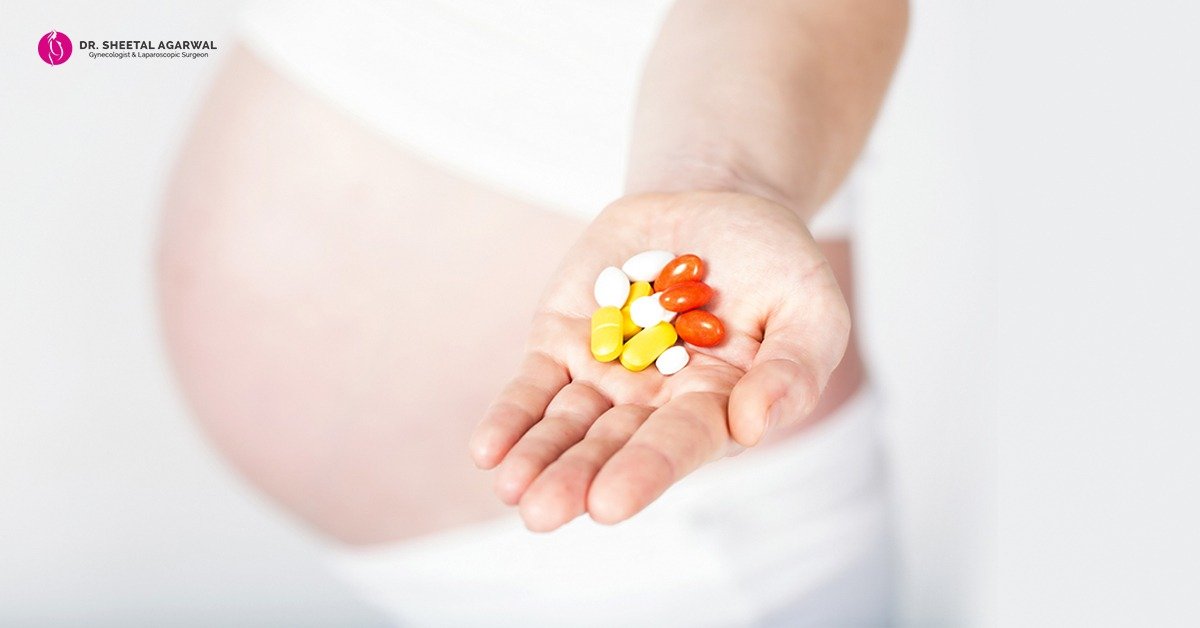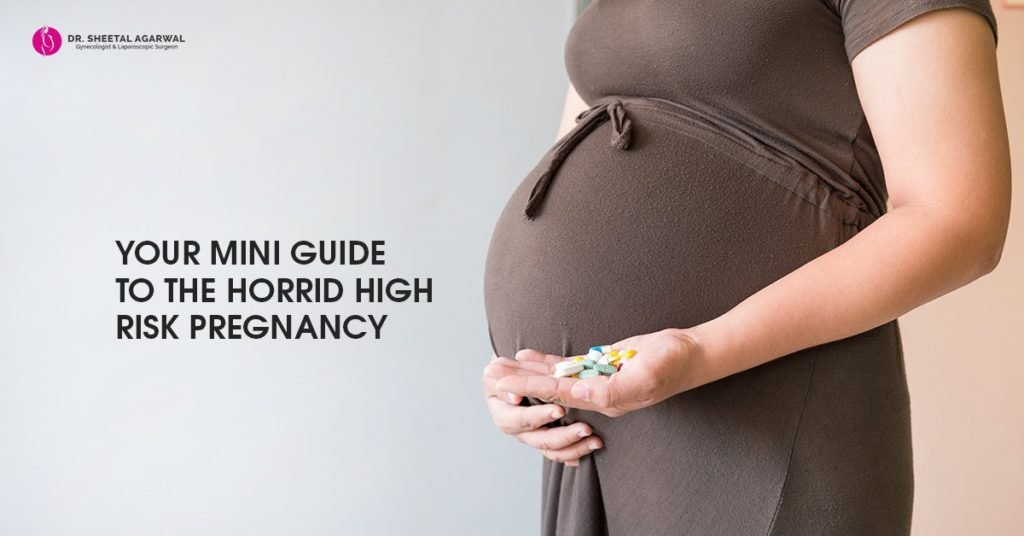Number of high risk pregnancies are on the rise as is evident by a terrifying 20% increase in recent years. Only awareness and knowledge about high risk pregnancy can give you the power of preventing it and saving your child and yourself from the terror and pain.
Before we begin demystifying high risk pregnancy here is a brief definition. High risk pregnancy is a kind of pregnancy that involves risk factors which threaten the health of both the expecting mother and her unborn child.
Factors that lead to a High Risk Pregnancy.
Here are the most common risk factors that can lead to an untreatable high risk pregnancy:
1. Age:
You might have heard the famous saying ‘Age is just a number’. Well, not when it comes to pregnancy.
If you are pregnant at an early stage of life (before 17 years), you have a greater chance of acquiring a high risk pregnancy. The reason is not just the immaturity and lack of knowledge. Apparently, during the teenage years, a girl is prone to anaemia (lack of red blood cells) and has higher blood pressure. These issues raise the chances of trouble and interfere during pregnancy.
Also, if you are above 35 years of age, you are more prone to Ectopic pregnancy. This issue happens when the fertilised egg gets implanted outside of the uterus instead.
2. Medical History:
You are prone to undergo a high risk pregnancy if you have a history of miscarriages or any genetic disorders. Other medical conditions that can lead to high risk pregnancy are high blood pressure and Sexually Transmitted Diseases (STDs) like chlamydia and gonorrhoea. Apart from these, chronic prenatal infections like HIV, Zika Virus, Strep etc. can damage both your health as well as that of the fetus.
Be aware that diseases like Gestational Diabetes or problems of the lung, heart, kidney, and autoimmune diseases also add to the probability of a high risk pregnancy.
3. Obesity:
Being overweight during pregnancy can risk the health of your child’s heart. Studies suggest that a mother’s obese condition increases the chances of heart problems by 15% in the child.
4. Preeclampsia:
If not treated early on, a syndrome like Preeclampsia can turn fatal for your unborn child. But do not worry! An issue involving unusual swelling, high blood pressure, and proteinuria, preeclampsia is totally treatable. For the uninitiated, proteinuria or protein in the urine alarmingly signifies damage to the kidneys.
5. Bad Lifestyle:
No wonder, habits of smoking, drinking and drug abuse can lead to traumatic events like miscarriages and stillbirth. After all, if these can harm an adult like you, imagine what they can do a sensitive and developing fetus. Thus, bad lifestyle is a prominent reason that can lead to a high risk pregnancy, harming both you and your infant.

Complications you can face with a High Risk Pregnancy.
1. Fetal issues:
A high risk pregnancy may involve structural problems in the fetus like incomplete development of the brain.
2. Placenta Previa:
Your Placenta is an organ that connects to the umbilical cord generated during pregnancy and carries nutrients and oxygen from your body (the mother) to the child.
However, during a high risk pregnancy, the placenta covers the cervix. Consequently, this can cause bleeding, especially when women have contractions. Sometimes a Cesarean section is scheduled to reduce bleeding risks to the mother and the baby.
3. Premature labour:
This happens when your labour begins right around the 37th week of pregnancy. High risk factors involved here are a previous premature birth, shortened cervix, and infections.
How to prevent it?
Preventing high risk pregnancy is not a cakewalk at all. Chronic medical conditions along with your lifestyle have a monstrous role to play. Here are some steps you can take that will help reduce your chances of a high risk pregnancy.
● Maintain a healthy weight with the help of a proper recommended diet and regular exercise.
● Avoid the consumption of alcohol, tobacco, or illegal drugs completely.
● Take proper vaccinations against all common prenatal infections beforehand with advice from your gynaecologist.
● If you have any medical conditions that need treatment, make sure the treatment does not harm the fetus.
● Consult your gynaecologist regularly for check-ups and care.
● Have a positive outlook and Involve more positivity in your life with meditation, fun activities, and yoga.
Tests that help diagnose and treat High Risk Pregnancy.
1. Urine tests for infections like HIV, Syphilis, and Urinary Tract Infections.
2. Amniocentesis: The procedure involves the extraction of amniotic fluid from the uterus once you reach the mark of 15 weeks of pregnancy. The test helps to check for any genetic abnormalities or any peculiarity of the spinal cord or the brain.
3. CVS: Chorionic Villus Sampling involves removing a sample of cells from the Placenta between 12 to 15 weeks of pregnancy. It helps to check for any genetic disorders in the unborn baby. But, it has a risk of baby dying during pregnancy. So, it is extremely important to think and consider it properly with the consultation of a skilled gynaecologist.
4. Prenatal cell-free DNA Screening: cfDNA screening is done to check for chromosome abnormalities in the infant’s DNA. The process takes place by extracting the DNA of both the expecting mother and the fetus. It can especially help to measure of chances of Down syndrome (trisomy 21), Trisomy 18, and Trisomy 13 in the baby.
5. Ultrasound: This is an imaging technique used to see if you are at risk of premature labour. This procedure is done by checking the mother’s cervical length i.e., the length of the lower end of the uterus. If the length shortens too early during pregnancy, you might expect preterm birth.
When to contact a doctor?
If you find any of the following troubling you, know that it’s time to visit an experienced doctor for help.
● Nausea and dizziness
● Vaginal discharge or bleeding
● Painful headaches
● A burning sensation or pain during urination
● Lower abdomen cramps
● Reduction in fetal activity
● Vision problems like blurredness
● Unusual amount of negative thoughts
Make sure you utilise all this knowledge and ensure a pregnancy with the least complications and risk possible. The best way to start applying all this information is by visiting a specialised gynaecologist today!
With almost 25 years of experience in this field, I, Dr Sheetal Agarwal, have encountered many high risk pregnancies and have helped turn them into healthy and successful pregnancies.
If you have any queries or doubt having a high risk pregnancy, visit my clinic and I’ll be glad to help.
You can book a consultation right away!



Women go through a range of biological and psychosomatic changes when having a baby. This is a great read. Very helpful tips.